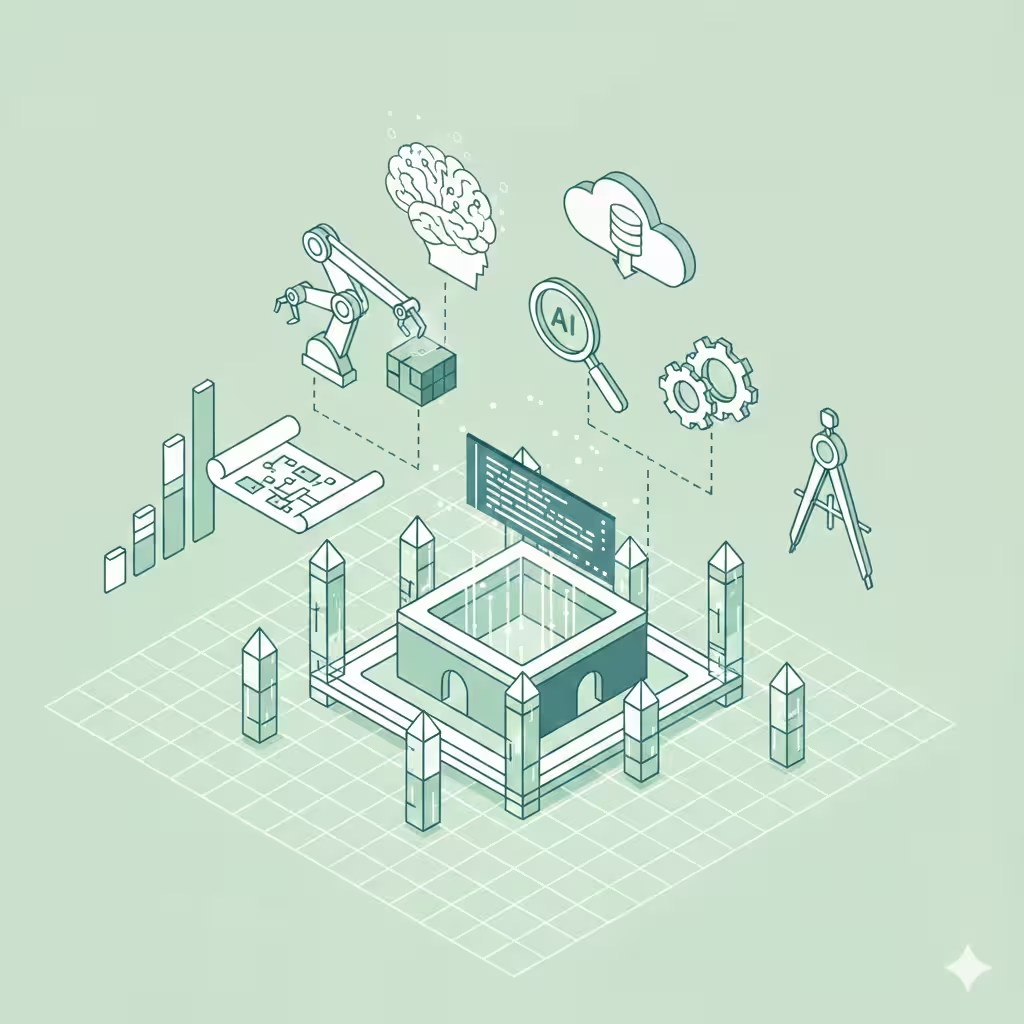Building AI Developers for Enterprise Platforms
Learn how our engineering team built verification-first architecture, agent-native tool abstractions, and RL infrastructure to ship AI developers that execute reliably on enterprise platforms after hundreds of production runs

At Echelon, we're building autonomous AI developers for enterprise IT platforms starting with ServiceNow. Customizations, implementations, and ongoing maintenance on these platforms cost millions and take months. We're replacing this work with agents that deliver in days, with a vision to automate the $1T IT services industry.
The technical challenge is unlike anything else in the agent space. Enterprise platforms like ServiceNow are low-code environments configured through workflows, business rules, integrations, and UI components. Every customer has configured theirs completely differently over 20+ years. The challenge is building agents that can understand these complex existing systems, plan implementations that work within customer-specific architectures, and execute reliably without breaking production systems running Fortune 500 operations.
After hundreds of production runs, we've built the infrastructure stack that makes this possible. Here's what makes this problem unique and what we've learned solving it.
Three core challenges
Enterprise platforms like ServiceNow, SAP, and Workday are ecosystems with domain-specific languages and decades of accumulated tribal knowledge. ServiceNow has GlideScript, SAP has ABAP, Workday has its own configuration languages. Architects spend years getting certified because mastery requires understanding patterns, anti-patterns, and edge cases accumulated across thousands of implementations.
This knowledge doesn't live in GitHub or Stack Overflow. It's in consultants' heads, undocumented customizations from teams that left years ago, and implicit relationships between tables and workflows that were never formalized.
These platforms present three fundamental challenges:
Context is emergent, not documented.
Traditional coding agents work on well-structured files. Here, context means thousands of database tables with 20+ years of undocumented evolution, implicit relationships never formalized. The same business requirement maps to completely different architectures across customers.
Changes have a massive blast radius.
A single workflow change touches business rules, integrations, UI components, and data models. Everything is interconnected. A change to one approval flow can break three other workflows, trigger incorrect notifications, and impact downstream integrations.
Compound failure modes.
Production tasks involve 10-15 dependent steps where early architectural decisions constrain later options. The model makes a valid choice in step 3 that makes step 8 impossible. Work completes, humans discover the issue during review, and you're rebuilding from scratch in production.
These challenges meant we couldn't just apply standard agent development patterns. We had to build something fundamentally different.
Our approach and what we've learned
We started like everyone else: thoughtful context engineering, smarter orchestration, the right tool calls. After hundreds of production tasks, we discovered every conventional assumption breaks down in these environments.
Context engineering alone can't guarantee deterministic behavior.
Frontier models explore rather than follow prescribed paths. The same model with identical prompts makes different architectural decisions every run. This led us to build verification-first architecture, decomposing tasks into orchestrated sub-agents with strict interface contracts, adapted for environments where context lives in databases rather than files. Each execution phase has dual validation: programmatic checks for structural correctness, LLM-as-judge for semantic correctness.
Platform APIs need agent-native abstractions.
We initially exposed platform APIs directly as tools. It failed. We now build semantic tool interfaces that collapse multi-hop reasoning chains - translating business requirements into schema queries, navigating implicit relationships, filtering context by relevance. A single well-designed tool replaces 5-7 API calls plus reasoning, reducing compound error probability exponentially.
Domain experts must be engineers, not advisors.
We hired ServiceNow experts as core engineering team members who write evals, validate outputs, and design verification systems. They know which reasonable-looking architectural choices cause problems six months later and whether edge cases are genuinely rare or common. This is non-negotiable for vertical AI agents. You can't build agents for complex, specialized domains without deep expertise integrated into core engineering.
Product and experience still matter, not just agent capabilities.
Full autonomy is the goal, but adoption requires building for how teams work today. We spent significant time understanding the workflows and operations of our users - how they expect work to be done, how they collaborate, what handoffs look like - to design interfaces that feel seamless. Our agents collaborate with our users at critical decision boundaries, enabling users to validate decisions and provide granular feedback that they can learn from.
Agent capabilities can become standalone products.
We learnt that our agent's context understanding turned out to be directly valuable to ServiceNow developers today. We launched it as a separate product. Developers using this tool reveal missing abstractions and patterns we need to add to the agent. This creates a learning loop: the tool helps engineers understand their systems faster, and their usage shows us what contextual understanding the agent still lacks. Building for both human engineers and AI agents makes both better.
These problems are ideal for reinforcement learning.
Enterprise platform automation has all the attributes RL needs to excel - complex decision spaces, clear verification signals, and high-stakes outcomes. We're seeing promising early results training agents to navigate architectural decisions, learning from evals to improve decision-making over time. The eval infrastructure we've built doubles as a reward signal for RL.
We’re hiring
We're automating a $1T industry that is reliant on an offshore labor model with autonomous agents.
We're AI researchers & engineers who've built production ML systems at scale and who push frontier models to their limits. We optimize for learning speed over being right the first time. Every technical decision gets debated. When something fails, we understand why from first principles and adapt our architecture. That's what solving frontier problems requires.
The technical problems are foundational and hard to solve. If that excites you, let's talk.
We're hiring AI researchers and engineers who care about shipping to production over demos. You'll work on reinforcement learning for real-world tasks with massive economic value. You'll have the resources to test ideas at production scale and the autonomy to rebuild when you find better approaches.
Please reach out to founders (at) echelonai.com with a resume and brief note about the most complex thing you’ve built.



